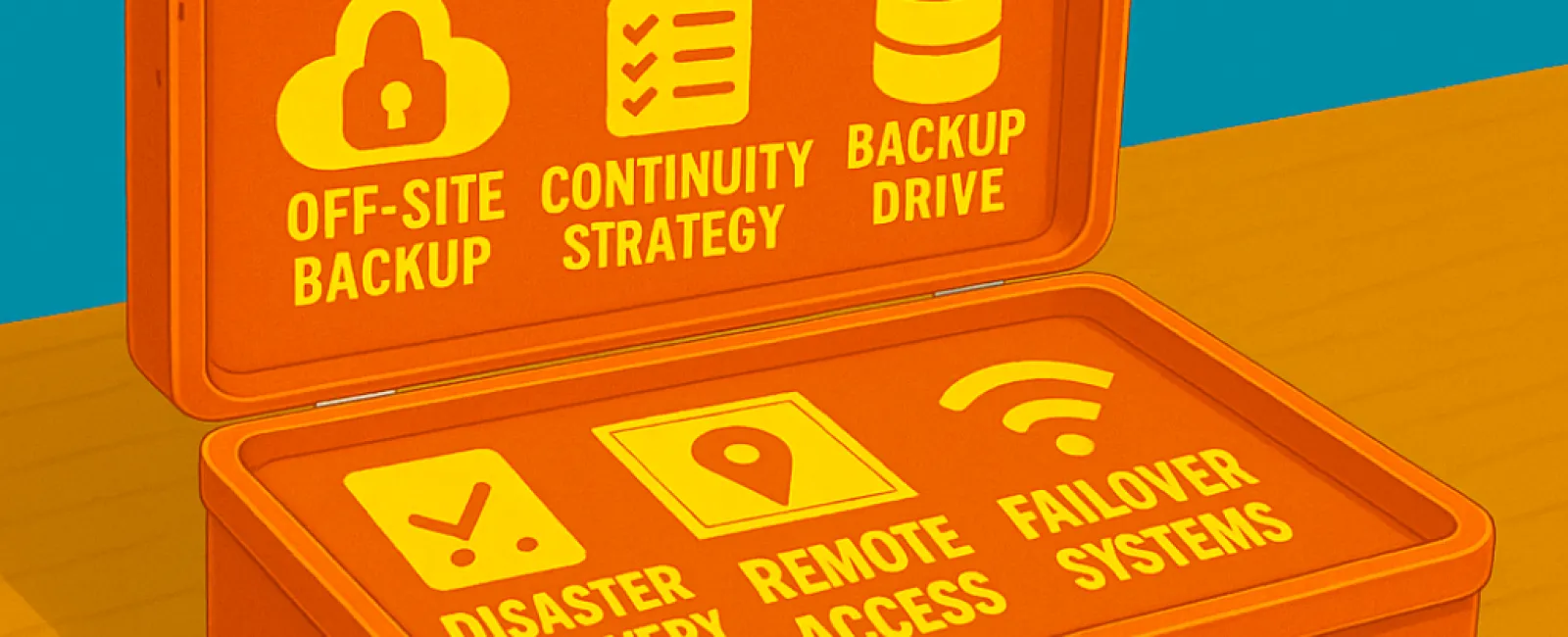July 28, 2025
Unexpected power failures, cyber threats, hardware breakdowns, and natural calamities often strike without notice, leaving small businesses vulnerable to severe consequences. While many believe that having a backup is sufficient, the reality is that simply restoring files doesn't guarantee business continuity. Without access to critical systems, the ability to support remote work, or effective communication with your team and clients, even brief interruptions can escalate into significant setbacks. Your trusted IT partner should equip you not only with reliable backups but also a comprehensive strategy to ensure your business remains fully operational under any circumstance.
Backups Alone Are Not Enough — You Need a Robust Continuity Plan
Backups are undeniably important, but they represent only one piece of the puzzle. What your business truly requires is a business continuity plan, a forward-thinking approach designed to maintain your operations seamlessly during and after any disruption.
When systems fail, files become unreachable, or your physical office is compromised, relying solely on a backup stored locally offers limited relief. Without a strategic plan for rapid recovery, your business is exposed to significant risks including lost revenue, damaged reputation, and compliance breaches.
Understanding the Critical Difference: Backups vs. Business Continuity
Many businesses make the mistake of conflating these two concepts:
● Backups enable data restoration.
● Continuity ensures your business stays operational regardless of the crisis.
A powerful continuity plan addresses essential questions such as:
● How quickly can we resume full operations?
● Where will our team work if our primary office is inaccessible?
● Which systems are absolutely critical to our mission?
● Who is responsible for initiating the recovery process?
It also incorporates vital elements such as:
● Encrypted, off-site, and immutable backups
● Prioritized recovery objectives (RTO and RPO)
● Preparedness for remote work transitions
● Redundant systems and automatic failovers
● Regularly scheduled disaster simulation drills
If your current IT provider can't confidently guide you through these critical components, you're not truly protected — you're just fortunate until the next disruption.
Could This Happen to Your Business?
This isn't merely a cautionary tale to pressure you into action. These are actual events with devastating impacts. Recently:
● Florida hurricanes forced hundreds of businesses to shut down, especially those lacking cloud access.
● North Carolina floods destroyed on-site servers, erasing months of vital records and invoices.
● California wildfires razed entire office buildings in the Pacific Palisades, many without any off-site recovery solutions.
● Numerous small businesses struck by ransomware attacks discovered their backups were either corrupted or never properly tested.
Disasters don't discriminate by business size — they affect companies just like yours every day.
Essential Questions You Need to Ask Today
If disaster struck tomorrow, would your business keep running?
Here's what you should ask your IT provider:
● How quickly can we recover if ransomware infects our systems?
● Are our backups regularly tested, and which systems do they cover?
● What's the contingency plan if a flood or fire disables our office?
● Does our continuity plan comply with all relevant industry regulations?
● Can we continue serving clients seamlessly if our team must switch to remote work?
If you don't have complete confidence in these answers, your business is already at risk.
Disasters Are Inevitable. Downtime Is Not.
You can't prevent every outage, storm, or cyberattack, but you can control how your business responds.
A competent IT provider helps you recover.
A great IT provider ensures your business never misses a beat.
Curious about your business's readiness?
Click Here or call us at 816-238-3777 to schedule your FREE 15-Minute Discovery Call, and let's guarantee that a disaster never results in downtime.



